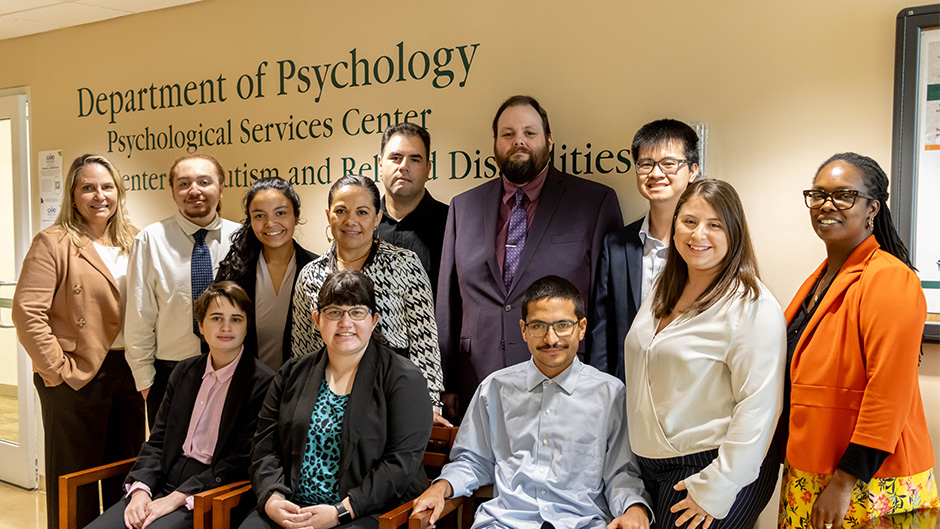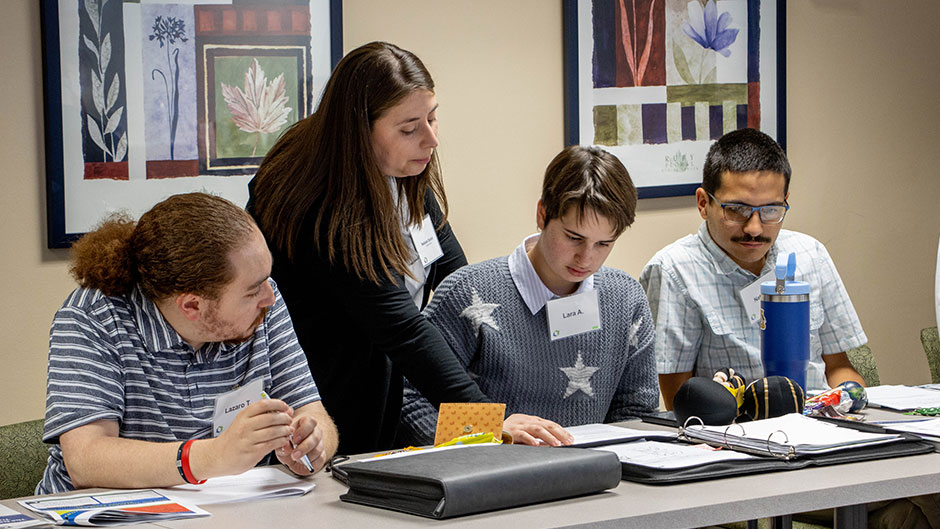The Daniel Jordan Fiddle Foundation (DJFF) Transition and Adult Programs team at the Center for Autism and Related Disabilities (CARD) held a one-week intensive program on the University of Miami’s Coral Gables campus in late July to assist adults with autism in learning a variety of pre-employment skills. These included building a resume, searching for a job, and social skills in the workplace, as well as the pros and cons of disclosing their diagnosis during the interview process or once they are employed. Participants also learned about commonly asked questions during a job interview and drafted answers to those questions with the help of program facilitators.
Nathalie Stanish, program manager for the DJFF Transition and Adult Programs team, has a personal connection to supporting adults with autism. She has helped her brother, who is on the autism spectrum, navigate the complexities of social service systems.
“Because of my history with my brother and the drive to want to help adolescents and adults, working with the Daniel Jordan Fiddle Foundation Transition and Adult Programs at CARD was a great fit,” Stanish said. “A lot of the resources, especially for employment, I was going through personally.”
Part of the Department of Psychology in the University of Miami College of Arts and Sciences, CARD is a state-funded resource and support center dedicated to improving the lives of children and adults with autism. Primary funding for CARD is provided by a legislative appropriation through the Florida Department of Education. This year, the Job SEEKers program hosted 10 participants, who were joined by five team members from the DJFF Transition and Adult Programs team at CARD.
For many of the participants, this program was their first opportunity to learn pre-employment skills. Every year, the organizers improve the program by continuously evaluating the best strategies to help adults with autism learn these skills.
“We tell the participants they will learn a lot, but as facilitators, we also learn a lot every year,” Stanish said.

While teaching interpersonal skills, the Job SEEKers program provided presentations and interactive activities centered around playing to one’s strengths in attaining employment, which fostered camaraderie as participants learned about their similarities and differences.
“We want to celebrate the participants and have fun,” Stanish said. “As each day goes on, as the participants find that they are not alone, we see that growth in their connection with other participants and in their social skills.”
It is especially important for facilitators to ensure that the program participants feel empowered as they seek employment and that they feel supported by their community, Stanish added.
“Our program is not a job placement program. We’re really focusing on the introduction of these concepts, bringing awareness, and empowering participants to know what they need to improve,” she said.
On the last day of Job SEEKers, participants had two mock one-on-one interviews with a community professional. In preparation for these interviews, participants prepared what they planned to say, including whether and how to disclose their disability. After the interviews, each participant had a follow-up meeting at CARD to review their performance.
Supported by DJFF, which was founded in 2002 to support and advocate for adults with autism, as well as other organizations including The Taft Foundation and Canon Solutions America, the Job SEEKers program is part of a meaningful initiative to provide employment readiness programming for adults. Team members Diane Adreon, Nathalie Stanish, Jennifer Feinstein, Maria Henao, and Jacquelyn Moultrie and their summer social work intern Jessica Salas facilitated the program. In addition to offering the one-week program at the University, they also offered a program in July in Broward County at the CARD Branch Office in Miramar, Florida.
DJFF is dedicated to building a world where adults on the autism spectrum have the necessary accommodations to attain their “maximum potential as individuals.” Through a generous gift from the DJFF foundation, adults with autism have the support, and safety net, to succeed.
“One thing we establish with participants is that what we go over is not explicitly taught in the school system,” Stanish said. “It is very difficult to get that information once exiting the school system, and we tell the participants that it is okay to be lost, or to not understand. That is why we started this program.”
Editor’s note: To protect the privacy of the Job SEEKers program participants, the College of Arts and Sciences did not include their names in this article.

